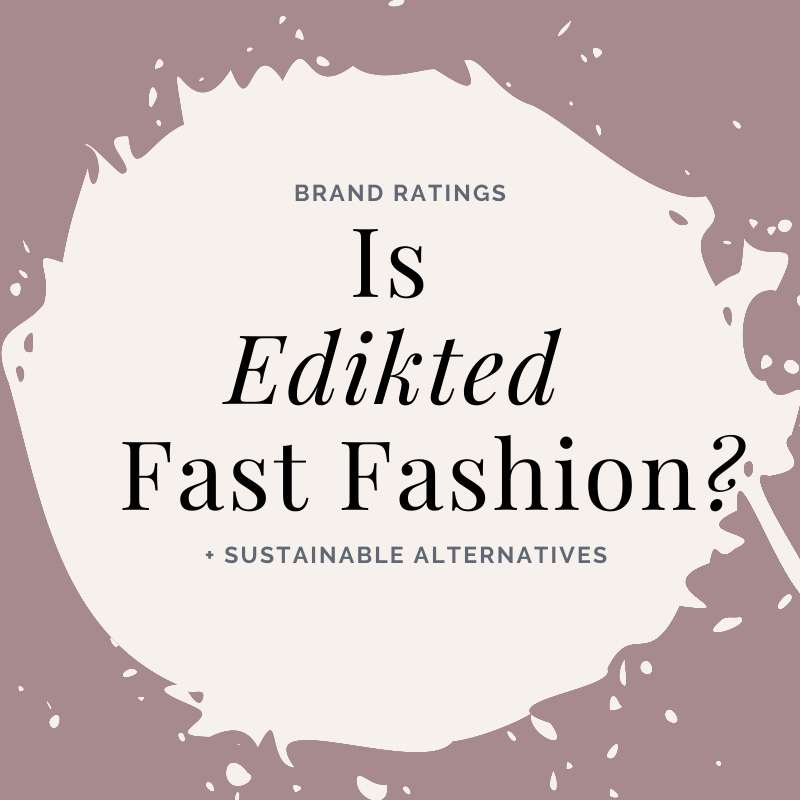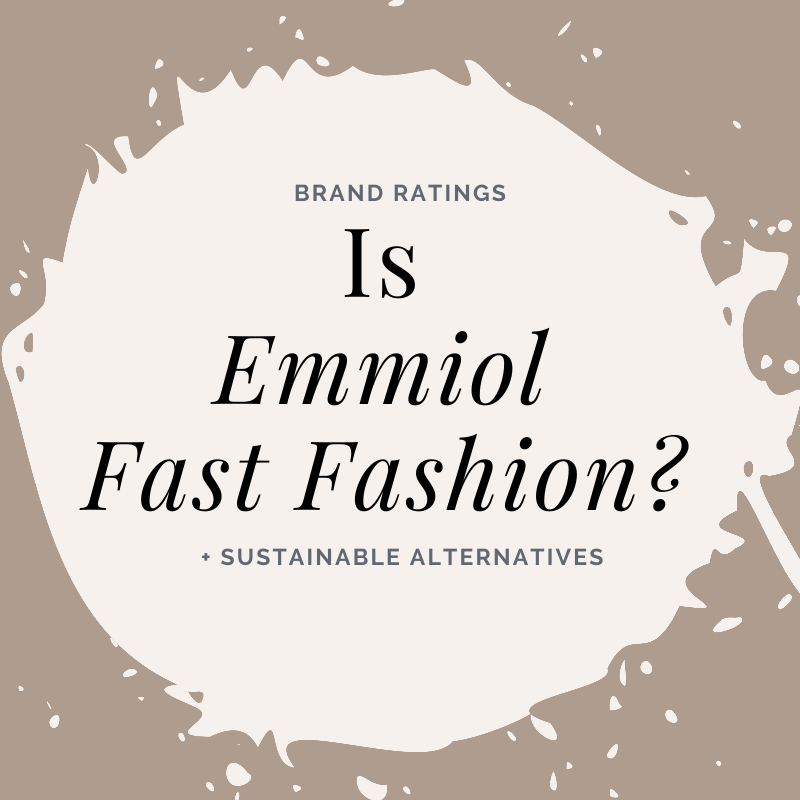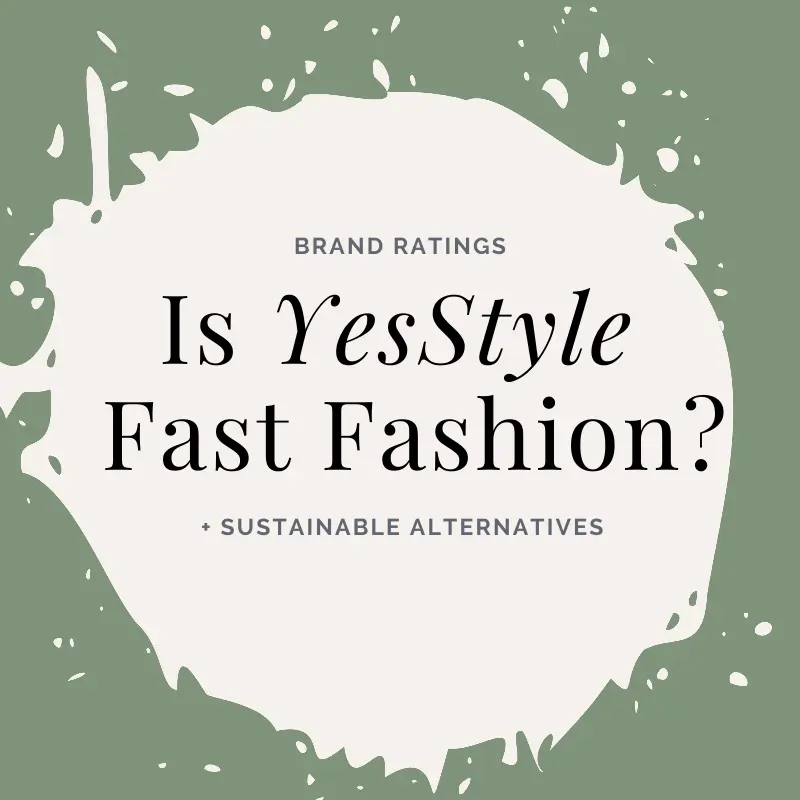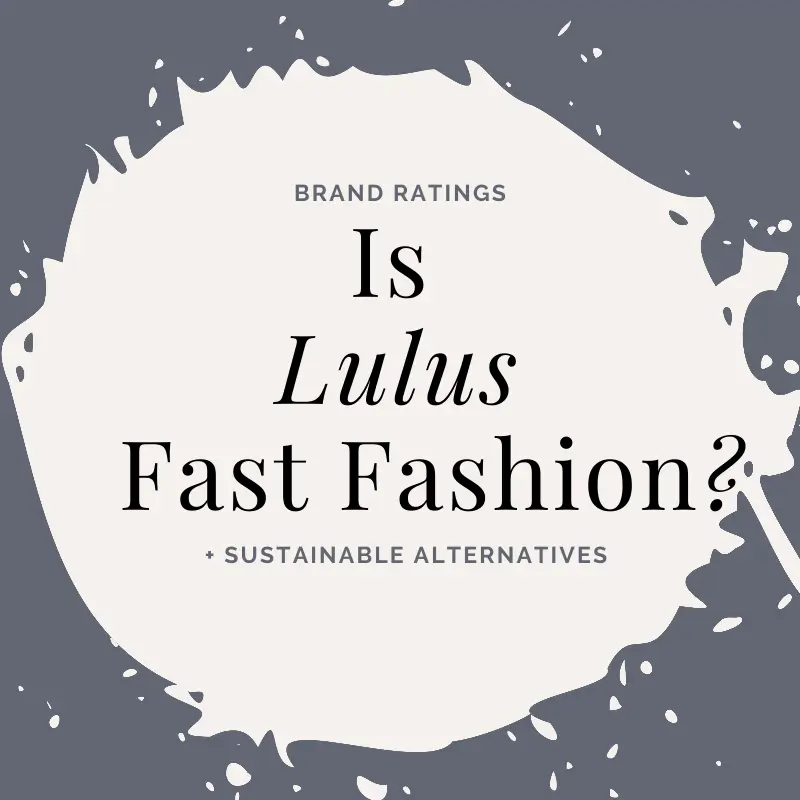
Lulus is a popular online American retail store selling women’s dresses, clothing, accessories, and bridal wear, but is Lulus fast fashion?
This article will discuss what materials Lulus uses, whether the brand is ethical, and where Lulus clothes are made.
Let’s dive in.
About Lulus
The Lulus brand was founded in 1994 in California, where it began with a passion for selling vintage clothing. Fast forward ten years, Lulus scrapped vintage clothing and launched its online marketplace.
In 2008 the brand closed its brick-and-mortar stores to operate online only. Since the launch of its digital platform, Lulus has become a popular online shopping destination for occasion wear, wedding dresses, and clothing for women all over the USA, but should you think twice before buying another Lulus’ dress?
Is Lulus Fast Fashion?
You may be surprised to learn that we would consider Lulus a fast fashion brand. The brand produces thousands of different styles and responds to rapidly changing and emerging trends by releasing hundreds of new styles every week.
Even though the brand doesn’t retail its dresses and clothing for the low-cost prices we see from other fast fashion brands like Shein, Romwe, and Zaful, there are similarities in materials and quantities between these fast fashion brands.
Looking at Lulus online store, we found over nine thousand styles of women’s clothing available - not exactly what we’d call slow fashion.
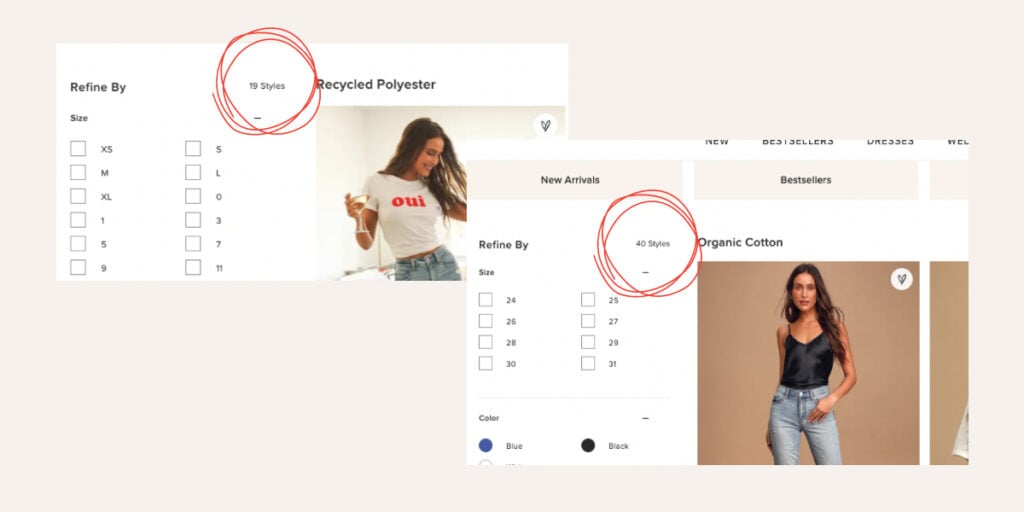
Creating this amount of stock leads to the mass production of clothing, which causes large amounts of textile waste during the production phase and when stock isn’t sold. In addition, fast fashion brands’ mass clothing production contributes to the large quantities of CO2 emissions and water usage. The fashion industry is the second highest water user worldwide, producing 20% of global water waste.
What Materials Does Lulus Use?
Lulus uses mainly environmentally harmful materials such as virgin polyester and cotton to produce its clothing. However, the brand also uses semi-synthetic materials, including viscose and rayon, in its collections.
Polyester is a non-biodegradable material that relies on fossil fuels and large amounts of energy to create.
When we searched for sustainable materials such as recycled polyester and organic cotton, we only found tiny traces of these materials in Lulus collections.
For example, when searching, we only found 40 styles across the whole website created from organic cotton and only 19 pieces from recycled polyester.
The brand doesn’t mention any targets to improve its use of sustainable materials - which is unfortunate to see a large brand not prioritizing sustainability.
Is Lulus Carbon Neutral?
No, Lulus is not carbon-neutral. The brand doesn’t provide any information about its carbon emissions and doesn’t seem even to have any public targets to try and reduce its greenhouse gas emissions,
Is Lulus Ethical?
Lulus provides little information about how it treats its employees and garment workers. There is no indication that Lulus works with any certified factories.
The brand has a code of conduct that its business must follow; however, within the CA transparency statement published on its website, the brand specified it does not routinely carry out audits of its suppliers.
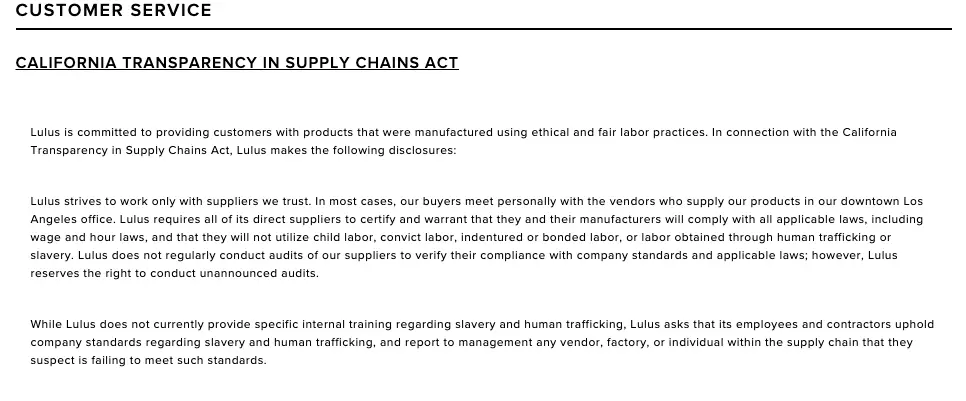
[Source]
By not routinely conducting audits, Lulus surely cannot guarantee that suppliers are fully compliant with its code of conduct and that there is no child labor, forced labor, or safe working conditions in its factories.
An improvement would be for the brand to conduct regular audits to check its suppliers’ compliance and ensure that workers have safe and fair working conditions.
Where are Lulus Clothes Made?
As mentioned previously, there is a lack of transparency from Lulus regarding where its clothes are made. For example, the band doesn’t disclose its supply list or the countries it works with.
Lulus also specify they don’t conduct specific internal training regarding slavery and human trafficking, which is highly disappointing as there is a possibility that Lulus does operate within countries where slavery and human trafficking are often reported.
Is Lulus Vegan and Cruelty-Free?
No, Lulus is not a vegan or cruelty-free brand, as they use wool and leather in its collections. Additionally, the brand provides no information on sourcing these animal products.
Does Lulus Have A Clothing Recycling Program?
No, Lulus doesn’t advertise a recycling program for its clothing.
Ecothes Opinion: Sustainability Score
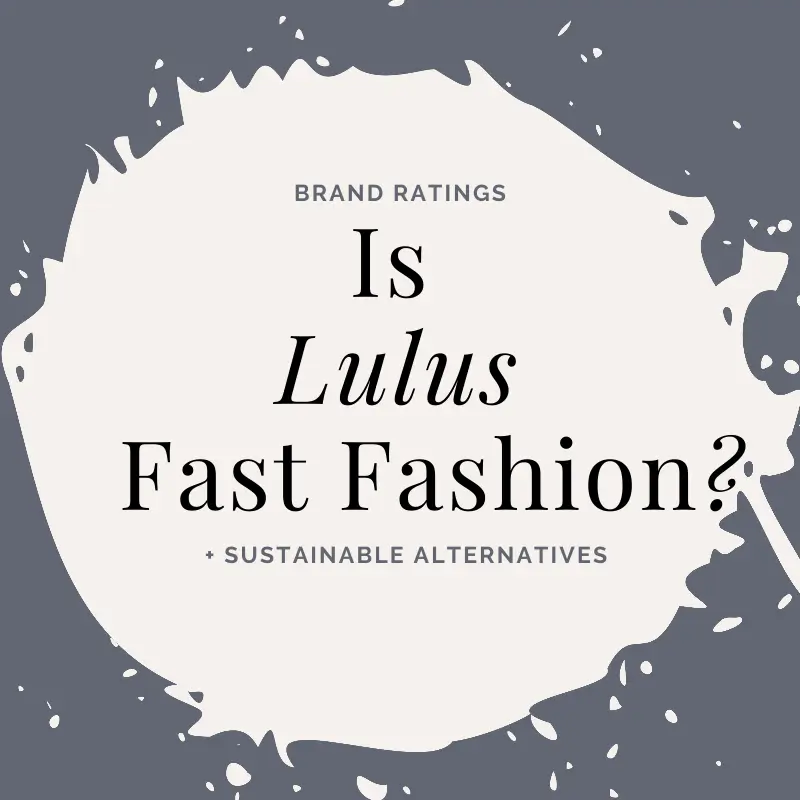
What we liked:
Unfortunately, we couldn’t find any positives we liked about the brand.
What we didn’t like:
The brand isn’t transparent about its factories or where its clothes are made.
The brand also doesn’t actively participate in audits of its suppliers, so how do we know the brand isn’t working with sweatshops or unethical factories.
Lulus doesn’t look to be improving its use of sustainable materials.
The brand doesn’t publish any plans to reduce its GHG emissions.
Sustainable Alternatives to Lulus
Suppose you’re surprised by Lulus lack of transparency and use of sustainable materials. In that case, there are some great alternatives to Lulus, which are using ethical and transparent labor, and eco-friendly materials.
1. Reformation

2. Whimsy + Row
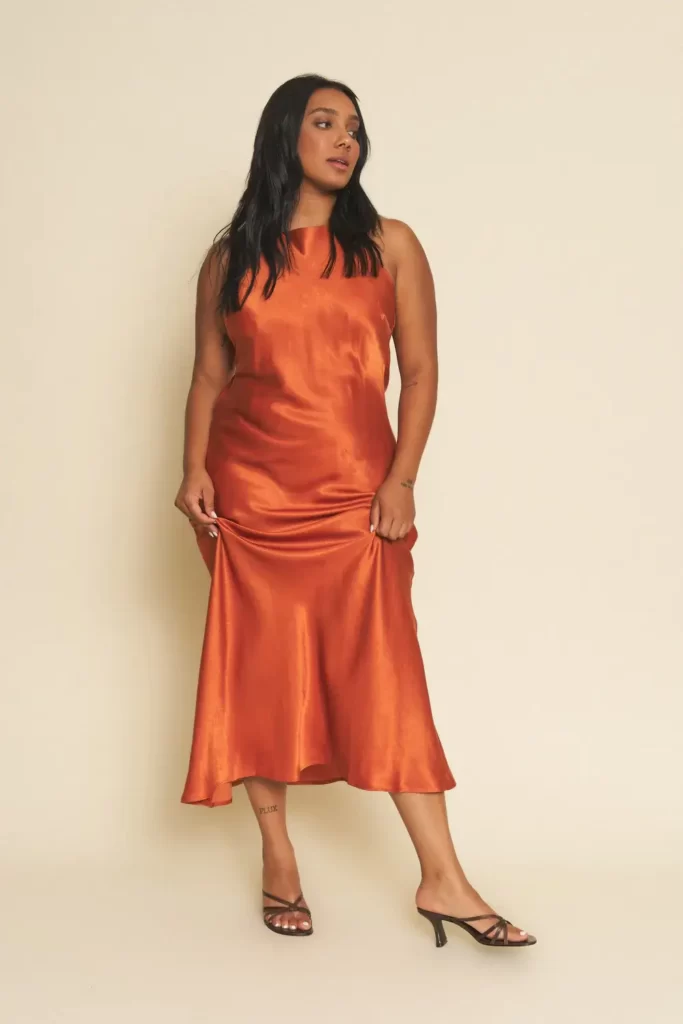
3. Amour Vert
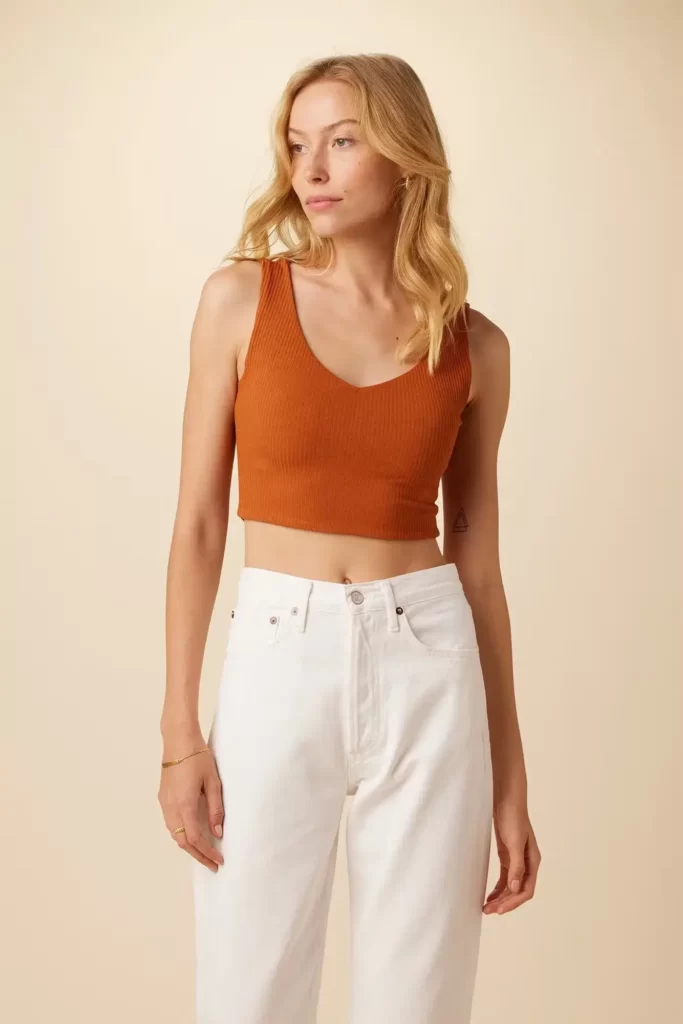
4. Sézane

5. Valani

Related Posts: Is Lulus Fast Fashion?
If you enjoyed this article, why not take a look at whether other brands such as Princess Polly, Urban Outfitters, and Banana Republic are fast fashion.

